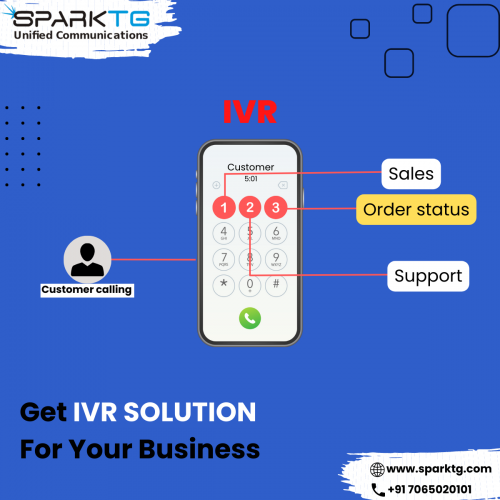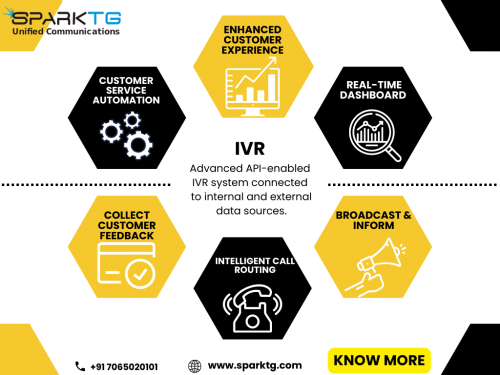Harnessing the Power of Cloud-Based IVR SolutionsA Story by meghnasoniOne such solution that has revolutionized customer service is Interactive Voice Response (IVR) technology.
In today's fast-paced digital world, businesses are constantly seeking innovative ways to enhance customer experience and streamline their operations. One such solution that has revolutionized customer service is Interactive Voice Response (IVR) technology. IVR systems use pre-recorded voice prompts and menu options to enable customers to interact with automated systems. With the advent of cloud computing, IVR solutions have become more powerful and flexible, offering businesses the opportunity to harness the full potential of this technology. What is Cloud-based IVR? Cloud-based IVR is a cutting-edge technology that enables businesses to automate and manage their incoming customer calls through a virtual, cloud-hosted platform. This technology eliminates the need for on-premises hardware and provides a scalable and flexible solution for handling customer interactions. Benefits of Cloud-based IVR Solutions Enhanced Scalability and Flexibility: One of the primary advantages of cloud-based IVR solutions is their scalability and flexibility. Traditional on-premises IVR systems often require significant hardware and infrastructure investments, limiting the system's capacity to handle increased call volumes. In contrast, cloud-based IVR solutions are hosted on virtual servers, allowing businesses to easily scale their operations up or down based on demand. Cloud-based IVR solutions offer businesses the flexibility to add or remove features and customize the system according to their specific requirements. Whether it's adding new menu options, integrating with CRM systems, or enabling multi-language support, cloud-based IVR systems provide businesses with the agility they need to adapt to evolving customer needs and market trends. If you want to know more, then visit SparkTG. Improved Cost-Efficiency: Implementing and maintaining traditional on-premises IVR systems can be a costly endeavor. It requires substantial upfront investments in hardware, software licenses, and ongoing maintenance. Additionally, businesses must allocate resources for system upgrades and regular hardware maintenance. Cloud-based IVR solutions eliminate the need for expensive hardware infrastructure, as the system is hosted and managed by the service provider. This significantly reduces upfront costs and allows businesses to pay for the services on a subscription basis or pay-per-use model, depending on their call volume. Cloud-based IVR solutions also eliminate the need for ongoing maintenance, as updates and security patches are automatically managed by the service provider. As a result, businesses can redirect their resources and focus on their core competencies, knowing that their IVR system is in safe hands. Seamless Integration and Advanced Analytics: Cloud-based IVR solutions offer seamless integration with other cloud-based services and applications. They can easily integrate with CRM systems, helpdesk software, and customer databases, providing agents with instant access to customer information. This integration enables businesses to deliver personalized and efficient service to their customers, leading to increased customer satisfaction and loyalty. Cloud-based IVR solutions provide advanced analytics capabilities. Businesses can track and analyze call data, including call duration, call volume, and customer interactions. These insights help businesses identify areas for improvement, optimize call routing, and enhance the overall customer experience. By leveraging these analytics, businesses can make data-driven decisions to streamline their operations, identify bottlenecks, and allocate resources effectively. If you want to know more about cloud telephony then Visit SPARKTG. Implementing Cloud-Based IVR: Now that we understand the benefits of cloud-based IVR solutions, let's explore the implementation process:
© 2023 meghnasoni |
Stats
24 Views
Added on June 13, 2023 Last Updated on June 13, 2023 Tags: business, technology, ivr, sparktg Authormeghnasoninoida, IndiaAboutI'm working in the cloud telephony and IVR sector, and I'm very passionate about writing about cloud telephony, IVR, and toll-free numbers. I've also amassed a great name for myself as a cloud telepho.. more..Writing
|


 Flag Writing
Flag Writing